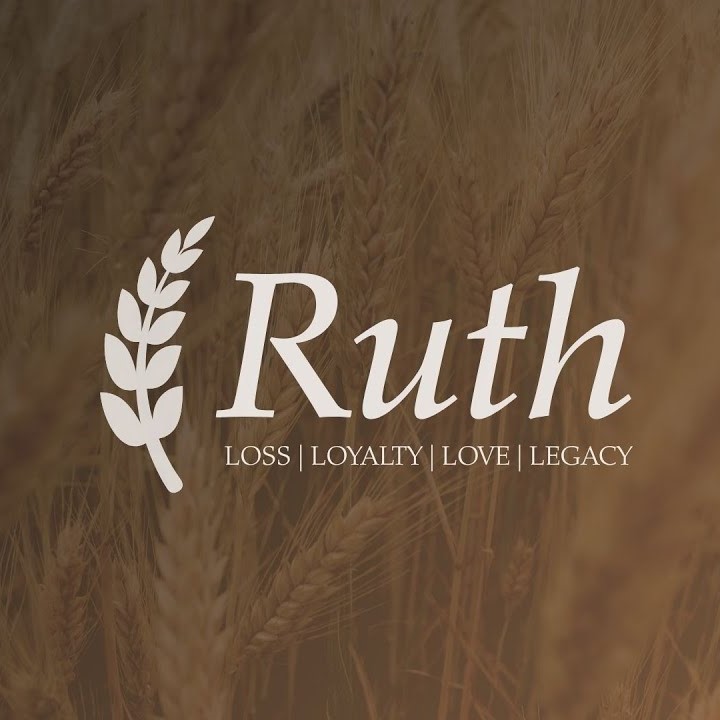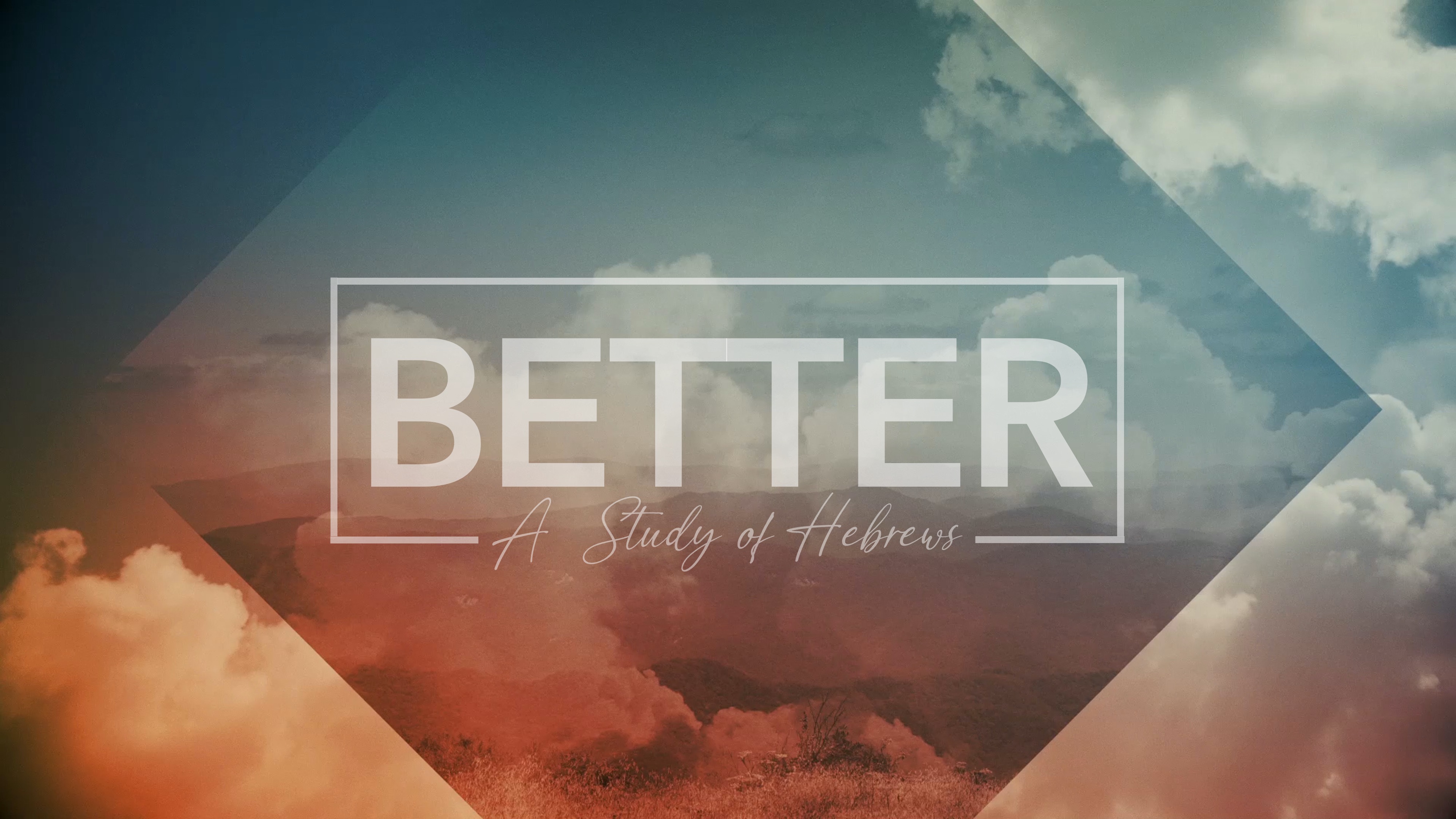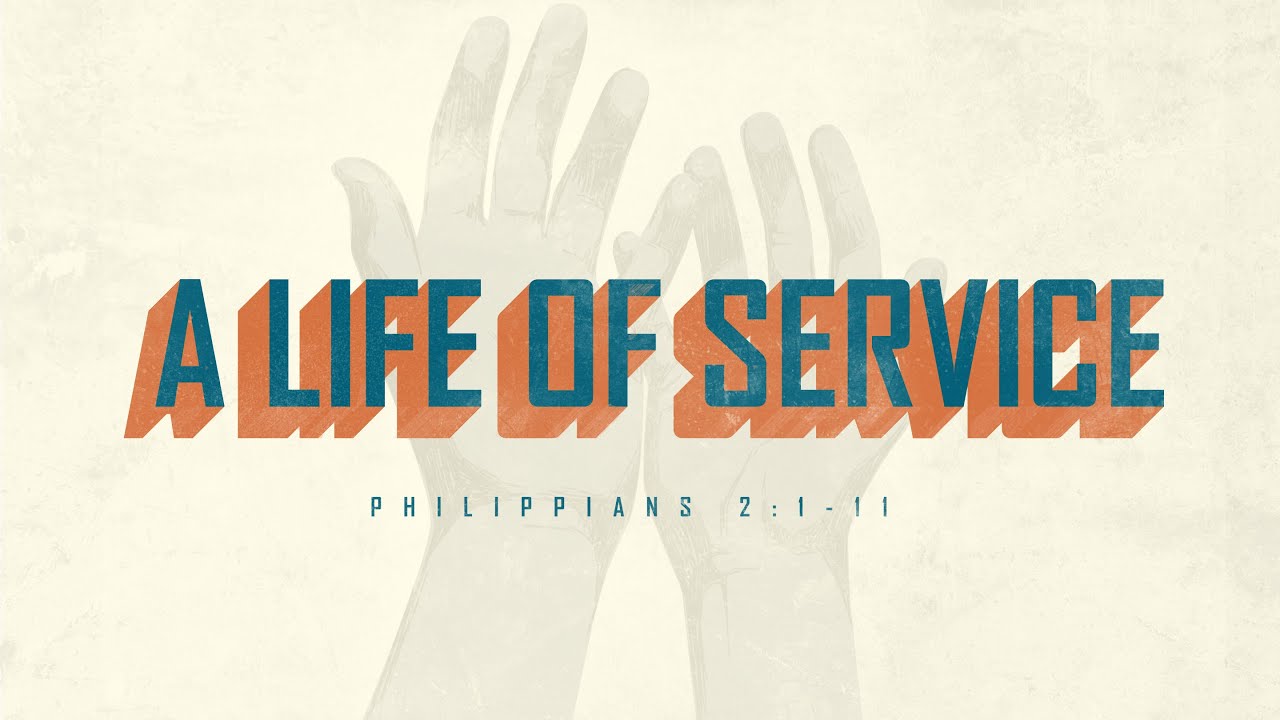[00:00:01] Speaker A: Hey, thanks so much for listening to this message. My name is Jason and I'm one of the ministers here at the Madison Church of Christ. It's our hope and prayer that the teaching from God's word you hear today will bless your life and draw you closer to him. If you're ever in the Madison, Alabama area, we'd love for you to worship with us on Sundays at 830 or 10:30 a.m. if you have any other questions about the Bible or want to know more about the Madison church, find
[email protected] dot. Be sure to also check out our Bible study podcast, Madison Church of Christ Bible studies. Thanks again for stopping by.
[00:00:37] Speaker B: Before we moved here, I got a facebook message from Andy Turner. I think it was several weeks before we were heading up here to Madison. And I'll never forget her welcoming us, but also welcoming and inviting crews to be a part of the second grade Bible class here at Madison. And what's interesting is just last night I have another little one now that's about to go into that second grade class and he was so excited about it. And also, my used to be second grader now is about to move into 6th grade and is going to get to be a part of that Bible class curriculum. And if y'all haven't heard the very thing that Miss Gail Jones had this vision of, a lot of other men and women here have been working tirelessly to get that 6th grade curriculum off the ground and running as they learn about the, the Holy Spirit for the entire year. And I guess when I was thinking about this beginning of his new school year and everything starting tonight, I just want to say a big thank you to our Bible class teachers. We have some awesome bible class teachers that teach on Sunday nights and Wednesday nights. You've made a difference in my kids lives and I want to say thank you for all that you've poured into them, from the little ones all the way through the adults. I want to say a big thank you to all of those that teach. And don't forget, tonight we start a brand new quarter in our connect groups. We're going to be learning about loving our neighbor. So I think it's going to be a great study together. So when I was growing up, we did not have any family right next to us or right down the road or really even in the same state. So anytime we needed to go to a family reunion, we would go to one of three places that our family was. South Florida or the Georgia Florida line or Michigan. So we had quite the long drive to go to those family reunions. And I remember for part of it, we rode in a Buick le saber. But for most of my childhood especially, I remember this because I was in high school and my sister and I were getting taller and our legs were getting longer. I remember most of the time when we made those drives to Michigan or South Florida as a family of four, we did so in a Toyota Corolla. And I don't know if you know much about those. They're not known for their legroom. And turns out dad did not buy it for our legroom. He bought it for gas mileage. And so we would make those trips. But I don't know about you guys, if you had siblings or not, and if you did and you made those long trips, you probably remember that mom and dad would try to do some kind of thing to get you to not argue on the way. My mom used to get this big map, and she would have this car that, as we made all the way up I 65 trying to get to Michigan to try to make us feel better. The car is not moving. You know, it takes forever to get up there. Then, of course, you know, we would say the thing, are we there yet? Are we there yet? And then my dad would say the phrase that all dads are supposed to say, right? It's your entrance into being a dad, right? When you say, I will pull this car over, or don't make me pull this car over. And sometimes he didn't even want to pull the car over because he was trying to make a certain time limit. And he did what a lot of dads do when they're driving the thing where they, you know, swatting any leg they can get back there. And so those are my memories in the car. And basically, those trips, the main thing that was encouraged is, hey, we're going to this family union. We're trying to have fun. Don't argue along the way. What's interesting about that advice, to not argue on the way, that's actually very biblical. It turns out that time and time again through scripture, we see that phrase. One of the first times it pops up is with a guy named Joseph. Y'all might remember Joseph. He had eleven brothers. Now let's think about him for just a second. Can you imagine those fights? Can you imagine those? I guess it would be camel rides. And the arguing that went amongst those boys.
Well, what made it more difficult? And as if they needed something else to fight about, what ended up happening with he and his brothers? God was very clear that he favored Joseph. And what made it maybe even worse on the brothers is Joseph's dad gave Joseph the coat of many colors. And then on top of that, Joseph had these dreams where his brothers were bowing down to him. Now, it's one thing to have a dream. It's a whole nother thing to tell everybody about it. And this is just my, I almost think it would have been good to keep that dream to yourself. But anyway, he tells them, and he tells them that dream. And what happens is their jealousy turns to malice, and their malice then leads to betrayal, where they end up selling their brother into slavery.
Talk about, like, brother fights gone wrong. It's incredible. And what's interesting, though, if you remember in the book of Genesis, which is also our theme for last leaders next year, when the Bible said this, those things that his brothers and those meant for evil, God actually used them for what? Good? He used those things for good. Joseph ends up being high in command eventually in Egypt. And long story short, there's a famine in the land. His brothers are hungry. They go to Egypt, they're going to ask for food. They're going to ask for help. They have no clue that the one that could give them help is, guess who? Joseph.
Now, did his brothers deserve food? No. Did they deserve help? No, but he gave them mercy. They had this great reconciliation. But for Joseph, it's not enough.
If you remember in that narrative, he's basically like, listen, it's great to have you guys here, but there's one person that's not here, and that's dad.
I want to be reunited with dad. Go and get him.
And as he sends his brothers along the way, there's a line in scripture that for years I missed. Didn't even know this was in the Bible. But I think it's kind of funny when it says this. Joseph sent his brothers away, and as they were leaving, he said to them, don't quarrel along the way.
I guess he probably thought, hey, what's probably going to happen is the moment they walk out these palace doors, they're like, it's your fault. If you wouldn't have had the idea to want to murder him or if you wouldn't have the idea to sell him into slavery if you weren't so money hungry, he's like, listen, we just reconciled. We don't have time to fight. There's no time to fuss. We need to focus on that great reunion. Let's go get dad. And don't argue. Along the way, those marching orders that Joseph gave his brothers. I want to go ahead and say, I think those are great marching orders for us today.
Think about it. Right now, you and I are right in the same exact spot that those brothers are. We're between that great reconciliation, that great reunion. One day we're going to experience with God, the Father in heaven. And knowing right now, you and I are between that reconciliation and reunion. We don't need to quarrel and fight along the way. That advice was exactly what was given to these two ladies in the church in Philippi.
They were told, hey, you just have been reconciled by the Lord. And knowing that there's this great reunion coming, you don't need to quarrel along the way. What happened to these two ladies named Yodia and Syntyche? And by the way, one thing I never thought I would like be a part of preaching is going to your office. Youtubing how to pronounce these names. But that's what I did for a few hours one day. But they were living at this time between a reconciliation and a reunion.
But just like us, sometimes we forget that and we find ourselves quarreling. I think, about these names. Yeah, that's what they're called. But it could as well be Mildred and Gertrude or, you know, Wilbur and Albert, right.
That we all struggle with this at times and forget the big picture this text is giving us and encouraging us the path to unity, even when at times we might disagree. And so what I hope this morning, as we open up the Bible together, that you'll find the encouragement to see the big picture as Paul digs into this text. Now, what's interesting about this text is before Paul even deals with the argument amongst these two ladies, he first frames the argument and sets the context. Now, if I know we have a lot of military people here, and one of the things someone told me at the early crowd this morning is that when he went through his military training, one of the things that they were taught how to do is that if there was a group of people in a dispute, if there was a group of people that weren't seeing eye to eye, you don't first focus on the dispute. You don't first focus on what you're not seeing eye to eye. You focus on the big picture. It's actually a common tactic that's used to kind of divert. If there's a tense scene between two groups of people, those people that come in and they're trying to resolve that conflict, they say, hey, listen, whoa, whoa. There's no need to jump to a big conclusion right now. Let's everybody lay your arms down. Let's talk about this. Let's see if we can do that kind of thing, right? That's how they're taught to start with. What's interesting is that's what Paul does before he jumps into Yodea and Syntyche and the issues they have with each other. Look how he frames this whole argument.
He says, therefore, my brothers and sisters whom I love and long for, you're my joy and my crown, stand firm thus in the Lord, my beloved. He kind of reminds me of those parents that they see their kids arguing like, well, don't forget you love each other, right? Your siblings. We're a family. We're trying to go somewhere, right? That's what he's doing here. He's letting them see the big picture. I want you to notice he's wanting them to focus on the big deal, the big things, which is heaven, the church and the Lord.
I want us to think about for just a second if we stand firm in those things, if we stand firm in heaven, if we stand firm in the Lord, and if we stand firm in the church, I don't think we will be as much crippled by petty arguments, traditions, opinions, our own will, our own desire, whatever that might be.
And so let's think about each one of those for a second. I mean, before he even deals with this, he says, first, let's think about heaven.
Just kind of like Joseph's brothers.
We didn't deserve God's mercy. We didn't deserve Jesus Christ. We didn't deserve the hope of heaven.
And one thing we all know is one day we are going to stand before the Lord, and when we do, we're going to get to be with him forever. If we've had that relationship with him, and it's not because we earned it, not because we deserved it, but we are going to get to live in paradise with him forever. And so it's almost like Paul's saying, hey, listen, I know you got this argument, but let's think the big picture. We're all going to be in heaven.
And it's almost like he's kind of saying, listen, so Yodea, I know she didn't give you credit for the bulletin board, you did. But at the end of the day, heaven, right? That's the big picture.
See, it's hard to maintain a petty argument or hold on to a very big opinion that we've made a pillar when we're in the face of our ultimate reality. But notice what he also says. He said, I want to remind you that your brothers and sisters, he frames it within the context of the church. Why? Because he understands that if we don't deal with this now, it's going to be a big issue later. Have y'all noticed that in this whole book, as we've gone through it the past, I guess, two months now, is that if there's like a little attitude that creeps in, Paul has to address it. He notices like, hey, if pride starts to make its way in, we can lose our humility. If legalism makes its way in, we can lose our joy. As I was reading this and even wondering, like, wait, why do we break this part of the text off? And why do I have to preach about two women in the church arguing?
As I was reading all of that, I kept thinking, why? But then the more I thought about it, I was like, I know why this is included in the Bible, that the Holy Spirit, God, wanted us to have this and to read this today, because he knows that if we don't address the issue, there will continue to be an issue. That's why I think he's mentioning this, because we know this within any family unit, if you have a family, you all know we all have that one family member that's maybe a little different, right? One that might cause problems. And I've told you jokingly before, if you say, well, we don't have that one, that you might be the one, but just. You're not kidding, though. But we all have that, that one person. And whenever they make a poor decision, does that just impact them?
No, it impacts everybody. That's why I think he mentions this here, and it's not random. But the other thing he says here is, I want you to agree in the Lord. I love the fact that he doesn't try to, like, point to himself or he doesn't say, hey, I need you to agree with me.
I want you to agree in the Lord. And think about this. Think about the dispute, the argument, whatever it may be, for them, which we don't know what it is.
Imagine what weight that argument holds when they put it in the place of who the Lord is, what the Lord's done, and how none of us would experience his mercy if he hadn't given to us, y'all. That is a very wide and common ground.
That's where he begins, you know, when we put our disagreements or arguments at times in the face of ultimate reality, those things in life that we thought were pillars, turns out that those things eventually were actually just opinions, you know, there's a direct connection between us understanding our identity and our place and our ability to relate in the family. Well, I see this a lot in adoption and foster care in the agency that I get to help with. One of the things that we get once a month on Sunday afternoons, is a report, a family report. And in those family reports, of course, there's no names included, but it talks about over and over again, it's almost every month or every week that the kids that are struggling the most in foster care and kids that are struggling in our communities are the ones that don't have a place in a family.
And when they're in and out of a home, they don't know where their family is. They don't know is there a family? They don't know their standing. It's hard to relate. There's a direct connection between their resiliency and relating to people well and their identity.
And that's why I think he does this here, because if we know our place in the family, we can relate better. And this might be, like, a weird way to put it, but one of the articles that I read talked about the difference in how donkeys versus horses and how they fight. And so the article talked about, like, if wolves or something like that were to come at horses, what horses will actually do is face each other, and they'll kick outward towards that enemy, that wolf or whatever it is. But you know what donkeys do? Donkeys actually face the enemy, the one that's attacking them, and they kick each other. Right. And I know it's a funny picture, but that's kind of what Paul's getting at here in this text. We have to know who the real enemy is.
We have to know the one that's trying to distract us, to pull us in a different direction. If not, we'll fight in the wrong direction.
And after laying that groundwork, he then says this, I plead. Most translations actually use the word urge. And I like the word urge better, because Paul uses it over and over again in different epistles when he talks about relating in the family. Well, he says, so I urge you, Yodea, and I urge you, Syntyche, to be of the same mind in the Lord. Now, who are these ladies? We don't really know. We don't know what they were fighting about. We don't know what the argument was. We know it was not. And we'll get to that in a second. But here's what we do know about these ladies. These ladies were very important to the ministry of the church and the reason why we know that in the very next verse, one of the things that Paul says is that I urge you to get along because you have struggled with me. You've been by my side.
In fact, most biblical historians think that these two ladies were at the riverside with Lydia, that they were a part of that original group.
They were leaders in the church. They were people that had a voice. They were people that were, you know, helped get this whole thing, go in here in Philippi. And he's like, listen, I urge both of you. And here's what's interesting. Does he say urge to one or both?
He says it to both. And so the fact that he's urging both of them tells them they both have a. What?
A responsibility.
You know, when there is disharmony, dysfunction, or disagreements between two groups of people, usually. Usually there is some measure of fault on either side.
And there might have been, hey, I could have responded better.
I could have listened more and talked less, or in this instance, I could have thought about the big picture. It's not about my opinion. It's not about my will. It's about the Lord. It's about the church. It's about heaven.
But I also understand that there are some issues at times that are one sided, where you didn't ask for it, you didn't want it, you did everything you could. And while that might be the case, the reality still remains. The road to harmony. The road to unity is never a one way street. It always takes two different people or two groups of people. Here's the other thing that we can draw from this text is kind of going back to first corinthians. When Paul uses that word, urge. Here's what I want you to notice that he does. Again, he doesn't say, I urge you because of what I know and what I've experienced as a leader in the church. He says, no, I urge you in the name of who? The Lord Jesus Christ. He's wanting them to see the big picture. The big picture is not what I want. What my desire is. The big picture is that we're a part of the family of Christ. He said, in that all of you agree, and then there will be no divisions among you, but you will be united in the same mind and judgment. And by the way, I think this verse is kind of funny. It's been reported to be by Chloe's people that there's quarreling, which is, you know, how did that come up? Hey, how was there quarreling Chloe's people? You know, but anyway. But. So he's drawing the foundation. Hey, we won't have as many arguments if we see the big picture.
This is the name of the Lord.
But here's what I wanted to point out next, is when we think about families, we think about the church. Family and the church.
There are going to be times where we don't see eye to eye with each other, but that's also a reminder of the blessing we have.
I know this might be a weird way to put it, but the problem that we have with it, talking about relationships, is actually why there's power in it.
One of my favorite proverbs is a kind of overlooked proverb that kind of points to this point. And this is what the proverb says.
Where there are no oxen, the manger is clean.
So this person's like, hey, look, I want you to check out this manger I've got. It is spotless. Like, it doesn't smell like an animal. It doesn't look like an animal's been there. And the person's like, yeah, you know why?
There's no oxen in there. There's no life in there. Of course it's clean.
But the fact that there is a mess in that guy's barn and that guy's manger shows the fact that there's what in there?
There's life in there. The fact that there is life in there is also a sign that, hey, something's happening.
I mean, think about our homes. When something happens with a home, and we got to fix the air conditioner, we got to fix the plumbing. Yes, it's a problem that we got to fix the plumbing, but it's also a reminder we have a home.
That's what he's kind of getting at in this text, that, hey, that I know there's problems, but the fact that we might not see eye to eye is also a reminder that we have people to see eye to eye with at times, to look in the eye, to cry together, to talk together. The problem we have that is also a reminder why there's power in the body of Christ.
But here's what we also know. We do know that they were not having a truth issue or a gospel issue. And the reason we know that is any time in any epistle, Paul has seen a time where people have not shared truth. They have misrepresented the gospel every single time. Paul lets them know.
He's not scared to let them know if they're not speaking truth. So evidently, the issue here is not a gospel related issue. It's an opinion related issue.
The other thing that I thought about as I was reading this text, because I'll go to tell you, when I first read it last week, and I'm reading Yoda and Syntake, you're not getting along. It kind of felt eavesdroppy a little bit when I was reading it, and I was like, I don't know, it kind of felt odd, you know, like, me reading it. And I was thinking, why is this like, we've. It kind of seems random to have these three verses about two ladies that are arguing with each other, but maybe that's part of the point. The point of why God put it in there is to remind us, hey, if it can happen to them, these two ladies that were there at the riverside, these ladies that have been walking with Paul, it can happen to all of us. What he's saying, every single one of us can forget the big picture.
It's about heaven and getting as many people with us there.
It's about the body of Christ and us working together for that cause.
But it's also about the Lord and what he has done and how wide and awesome that ground is.
And so this is what he says next. So I ask you, true companions, help these women who have labored side by side with me in the gospel, together with Clemente and the rest of my fellow workers whose names are in the book of life. He's saying, hey, we really need these ladies to get along and to focus on the big picture. And if they can't, we're going to bring some other people in to help. And as I was reading this, the one thing I kept coming back to when I read Yodea and Syntyche are arguing with each other, I kept thinking, man, that's a tough one for your name to be in the Bible for, you know, like, their names are in the bible forever.
We're reading it thousands of years later because they're arguing with each other. There's a dispute amongst them.
And so then it got me thinking, all right, well, if my life was to be summed up in one sentence, would it be summed up like that, like Yodea and Syntyche, or would it be summed up like Clement or the companion, whoever that is? That was one of those that was kind of trying to help others to see the big picture.
How do you do this? You know, what I love about Paul is that Paul never ignores the fact that there's going to be differences.
He talks about it a lot, and one of my favorite places that he talks about, this is in one corinthians twelve, as he talks to the church in Corinth. I love how in verse twelve, he describes the body of Christ like a physical body. You've got hands, you got feet, you've got arms, you got ears. And then he uses that. Like us, in this room, there is so much diversity. There's diversity of background, there's diversity of views on things. And the beauty of that diversity is that we can forge unity through it. The idea of forging is exactly like that guy that owns the manger with the oxen. If there's a mess, it shows that there is life in there. But if there's life in there, it also reminds us at time, there's going to be a. What a mess.
But we actually grow through that forging. And so he says, listen, there's all these different people, these different talents, these different abilities, but look what he says in verse 24. But God has composed the body, so he put it together.
He gives greater honor to the part that lacked it, that there may be no division in the body, but that the members may be having the same care for one another.
Because if one member suffers, they all suffer. What? Together?
That's what we're talking about. The problem at times we have with it is why there's power in it, that we don't suffer alone, that we have the opportunity to suffer together.
If one member is honored, we rejoice.
Now, you are the body of Christ, and God has appointed in the church first. Apostles, prophets, teachers, miracles, gifts of healing, administrating tongues. Are all apostles, prophets, teachers. And he goes on to say, and I will show you a still a more excellent way, which he ends up talking about, the way of love.
So how do we encourage this? Despite our diversity and our differences, how can there be unity? Well, think about the things we just read. But also let's think back to the entire text of Philippians, things that Paul has highlighted. Relationally speaking, these are the things he's mentioned so far.
To remember your common identity. When we understand our identity in the Lord and in the church and in our place, in our home in heaven, that's amazing. Common ground to start from, to always be humble, to embrace our differences, believe the best in others, work through our conflict, check our motives, and don't gossip again, we could probably list a lot of other things, but these are ways that have been mentioned in this text to encourage that unity. But specifically about this text, what's the big thing? He wants us to walk away with, well, when there is disagreement, when we don't see eye to eye in our families, when we don't see eye to eye with each other, the ultimate goal is restoration.
Yes, discipline can be used, but discipline's not the goal. Restoration is the goal. And the attitude in which we carry ourselves is with grace, not force. And the common ground is Jesus Christ.
Not our opinions, not our traditions, not our will, and not our own desires. Restoration, grace, and Jesus Christ.
You might have heard of this before.
Charles Spurgeon was a well known preacher, and he had a buddy named Doctor hall. And doctor hall had just written a book talking about the compassion of Jesus.
And so he wrote this book, sent it to the publisher when the publisher got it. I guess this was before the days of Google reviews, but he gave his review, and he didn't like the book.
He thought it was off. He didn't think it was that great. And so doctor hall, when he read his review of his book and his naysayer, he's like, oh, well, I'm gonna show him. And the guy that was writing about the compassion of Jesus, he wrote the meanest article. I'm gonna tell him what's up. And so he wrote it and wrote out everything that was wrong about that guy's opinion, about that guy's thoughts. And so right before he was gonna send it, he was gonna give it to Spurgeon. He said, hey, what I want you to do is I want you to read over this just to see what you think. If I hit all the points that I need to hit, and Spurgeon read through it. And when he got done reading that letter, he said, hey, before you send that letter to him under your name, could you please just put the title of your book, you know, about the compassion Jesus?
And so when the man started to write compassion of Jesus and saw his name under Christ, guess what he did with that letter?
He ripped it up.
This morning, we talked about how right now you and I are in that place. If we've put on Christ, made that decision, and given our lives to him, we are between that reconciliation and that reunion.
And I'll tell you what Satan wants, nothing more is he knows that if we are divided, we can be conquered.
But if we are united in the big thing, the Lord, the church, and getting many people as possible to go with us to heaven, we're unstoppable.
But I also think back to when Jesus was about to leave this earth. You know, John 13 through 17 is what we used to have in high school. Called our last will and testament, which is like your I give you this and I give you that. That's what John 1317 is. You know what he starts with?
Other people will know you're my disciples. If you have, what?
Love one for another.
You know what he ends John 17 with that last will and testament?
Love one for another.
Maybe between the reconciliation and the reunion, you found yourself quarreling, missing the big picture.
Maybe if you're here, you've never made that decision to be reconciled to the Lord.
Maybe you're here today and you believe in him, but you've never made that decision to be baptized. We would love to talk with you about that. Maybe you've made that decision, but like we all have, we all stumble along the way and we need to be reminded of. And even though it's unfortunate for Yodea and Syntake, I'm grateful this is in there to remind us to always see the big picture. So whatever it is that you need this morning, we would love to pray with you. Maybe you need to go to one of these back doors and we'll have one of the elders there that can pray for you or you can walk down front, whatever you have a need of today, we'd love to pray with you, encourage you in any way we can, while we stand and we sing.





